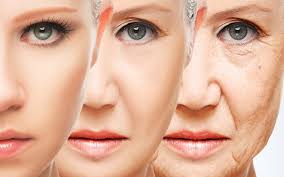
Menopause & Muscle: How to Stay Strong Through the Transition
Menopause & Muscle: How to Stay Strong Through the Transition
As women approach menopause, the body undergoes significant hormonal changes that can impact muscle mass, strength, and metabolism. If you've noticed it's harder to stay toned or that you're losing strength, you're not alone. Understanding the link between menopause and muscle loss can help you take control of your health and maintain a strong, vibrant body through every stage of life.
Why Does Menopause Cause Muscle Loss?
During menopause, levels of estrogen decline significantly. This hormone plays a key role in maintaining lean muscle mass and bone density. As estrogen decreases, the risk of sarcopenia—age-related muscle loss—increases. This leads to:
-
Slower metabolism
-
Increased body fat
-
Reduced strength and stamina
-
Higher risk of injury
The Power of Strength Training for Women
One of the best ways to combat muscle loss during menopause is strength training. Lifting weights or using resistance bands stimulates muscle growth, increases bone density, and boosts metabolism.
Benefits of strength training during menopause:
-
Preserves and builds lean muscle
-
Improves insulin sensitivity
-
Enhances mood and mental clarity
-
Supports joint health and posture
Protein: Your Muscle’s Best Friend
Muscles need protein to grow and repair. During menopause, your body becomes less efficient at utilizing protein, so it's important to increase protein intake. Aim for 20–30 grams of high-quality protein per meal from sources like:
-
Lean meats
-
Fish
-
Eggs
-
Greek yogurt
-
Plant-based proteins (lentils, tofu, quinoa)
Supportive Supplements
To optimize muscle retention and overall vitality, consider adding supplements like:
-
Collagen peptides – for joint and muscle support
-
Vitamin D & calcium – for bone and muscle function
-
Creatine monohydrate – supports muscle strength and brain health
-
Magnesium – helps with muscle relaxation and energy metabolism
Sleep & Stress Matter
Chronic stress and poor sleep—both common during menopause—can increase cortisol, a hormone that breaks down muscle tissue. Prioritize 7–9 hours of quality sleep and incorporate stress-reducing habits like:
-
Yoga or stretching
-
Meditation or breathwork
-
Walking outdoors
Final Thoughts: Build Strength, Build Confidence
Menopause doesn’t mean losing your strength—it’s an opportunity to reclaim your power. By focusing on muscle-preserving strategies, nourishing your body, and moving with intention, you can stay strong, energized, and confident for years to come.



Leave a comment
This site is protected by hCaptcha and the hCaptcha Privacy Policy and Terms of Service apply.